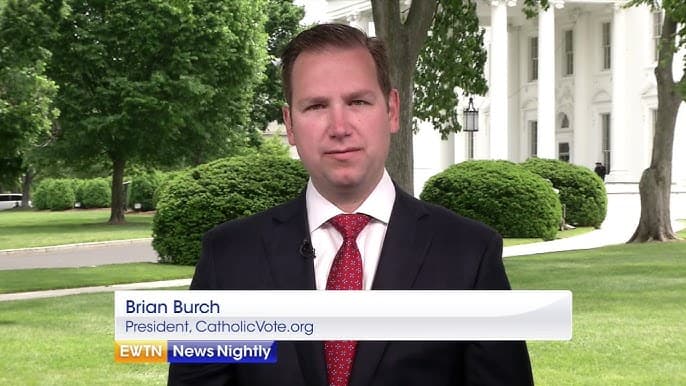ROME – In nominating Brian Burch, a right-wing Catholic political advocate and media figure, to serve as U.S. Ambassador to the Holy See, President-elect Donald Trump has moved to fill the position more rapidly than any incoming or reelected president in the last quarter-century.
The speed with which Burch’s nomination was announced suggests that Trump didn’t require an extensive vetting process, but he knew from the beginning whom he wanted for the job.
Burch’s nomination was announced Dec. 20, just the second time since 2000 that an incoming or reelected president made the pick for Vatican ambassador before New Year’s. The last time was 2000, when President-elect George W. Bush tapped James Nicholson, former head of the Republican National Committee, as his Vatican envoy on Dec. 9.
In other cases, the announcement of a new Vatican ambassador ranged from May at the earliest (Callista Gingrich for the first Trump administration, Miguel Diaz during President Barack Obama’s first term) to June (Kenneth Hackett for Obama’s second term) and August (Francis Rooney for Bush’s second term). The latest announcement was former Senator Joseph Donnelly for President Joe Biden, which came on Oct. 8, 2021.
The early selection of Nicholson in 2000 meant he was able to clear the hurdles for an ambassadorship more rapidly than is often the case. He was confirmed by the U.S. Senate in January 2001 and sworn in Feb. 1, though it wasn’t until Sept. 13, 2001, that Nicholson presented his credentials to Pope John Paul II, marking the formal beginning of his ambassadorship.
Donnelly, by way of contrast, wasn’t confirmed until Jan. 20, 2022, and presented his credentials to Pope Francis on April 11, which meant the new American administration was in office for 18 months before a Vatican envoy was in place. Donnelly then resigned July 8, 2024, six months ahead of the actual end of his term, meaning that Biden, only the second Roman Catholic President of the United States, was represented by an ambassador in the Vatican for only about half of his four-year term.
Since Donnelly’s departure, the U.S. has been represented to the Holy See by Deputy Chief of Mission Laura Hochla, a well-regarded career member of the foreign service who previously served as Director for European Affairs at the National Security Council.
Burch is best known as the president of CatholicVote, a conservative Catholic web site and advocacy group that gave significant backing to Trump during the 2024 campaign, which saw the Republican candidate win the Catholic vote 56 to 41 percent, a 10-point swing with respect to 2020.
A frequent commentator both on social media and for traditional news outlets, Burch often has been a critical voice on Pope Francis, which has raised questions in some quarters about his suitability for the role of a diplomatic interlocutor.
Regardless of those question marks, the speed of his selection would suggest Trump is unlikely to waver.
“I am committed to working with leaders inside the Vatican and the new Administration to promote the dignity of all people and the common good,” Burch said in a statement on his nomination. “I look forward to the confirmation process and the opportunity to continue to serve my country and the Church. To God be the glory.”














